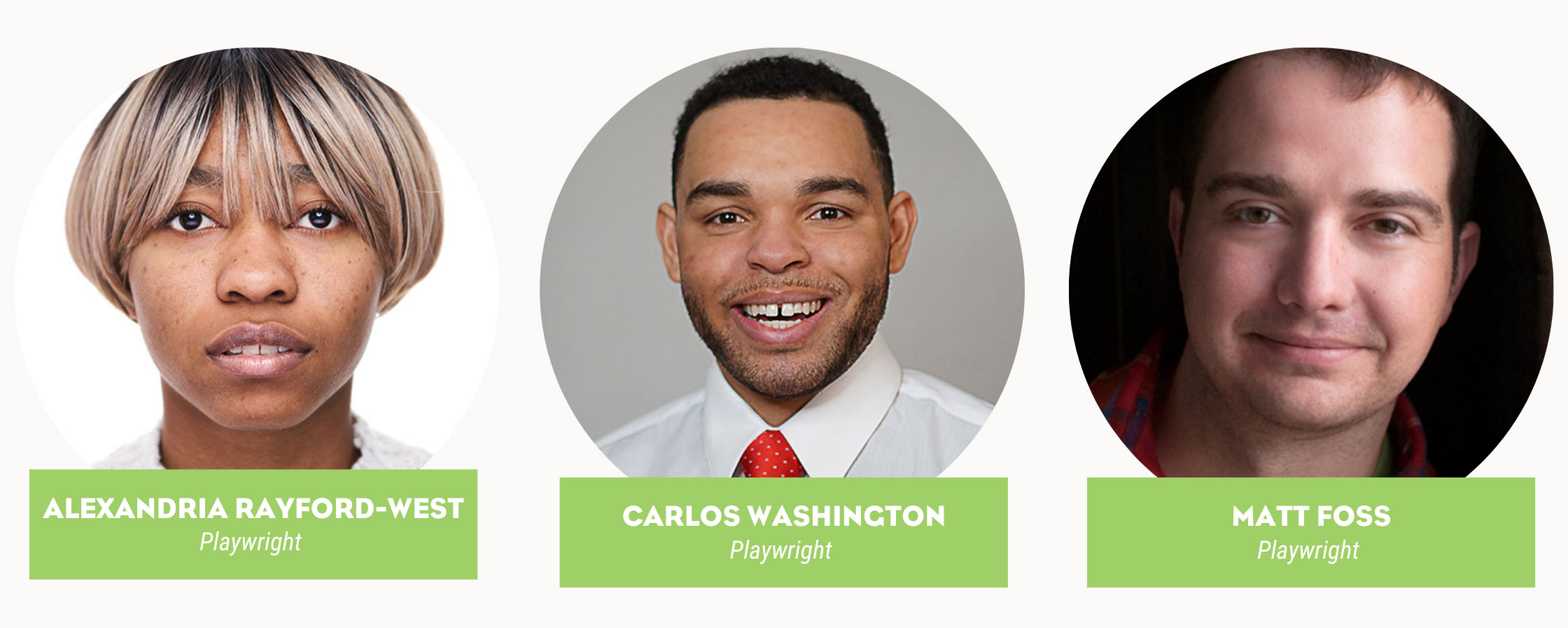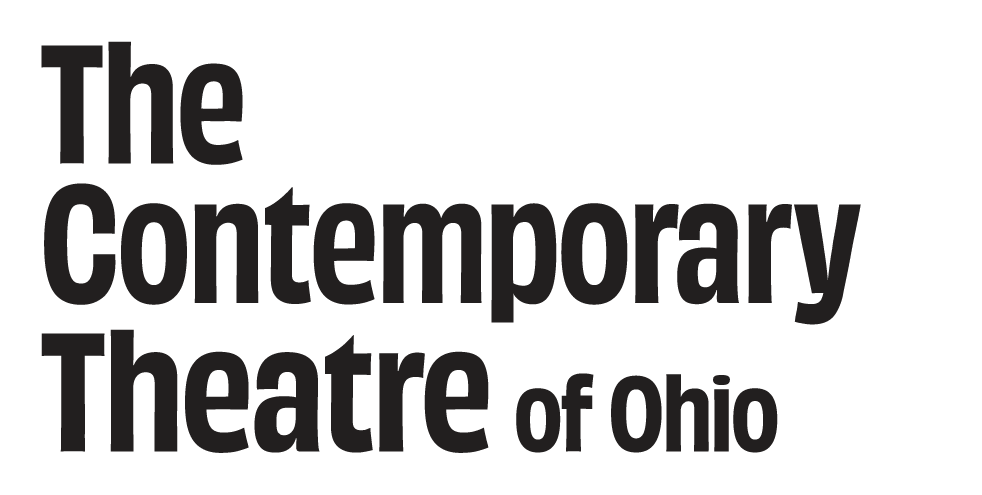20K Leagues Under the Sea: Meet the Playwrights
February 1, 2021

20K Leagues Under the Sea is being read as part of our New Works Festival on Saturday, February 13, at 7 pm. Details on this reading and how to attend can be found here.
20K Leagues Under the Sea: Meet the Playwrights
February 1, 2021

20K Leagues Under the Sea is being read as part of our New Works Festival on Saturday, February 13, at 7 pm. Details on this reading and how to attend can be found here.
Tell us about your creative process. What was the inspiration behind your play for the New Works Festival?
Alexandria: As far as the inspiration behind doing 20K Leagues Under The Sea, we knew we wanted to tell a story, and we had a few potential ideas up in the air, but after the attention brought to the Black Lives Matter movement, we realized that 20K Leagues said something important. As an ensemble, we believe fiercely in the theatre being a mirror of the world, and this story, written decades ago, is a mirror just as much now as it was then, and we really wanted to speak on that.
Carlos: The inspiration behind 20K Leagues came from a collective need for myself, Alexandria Rayford-West, and Dr. Matthew Foss to reflect the nuances of our current time and place as a society. This was done through the lens of a contemporary theatrical production. The story itself, 20K Leagues, almost entirely retained the same dialogue from the original novel written by Jules Verne. However, what we’ve done to this classic story is apply a new context.
Matt: This project started with students at the University of Toledo and the two leaders of the Black Theatre Ensemble there. As a writer and teacher, my aim is to write alongside for and with and often about my collaborators. In this case, I was often the typist for Carlos and Alexandria’s ideas and my job was to say “is this the play we are trying to make.” Juxtaposing this novel against the current conversation was our effort to complicate the gaze on narratives that are so repeated they’ve been taken for granted or remain unexamined. But all in all, I was following the thinking and skill of the students.
What role, play, or production are you most proud of?
Alexandria: Aside from 20K Leagues, Matt in Mr. Burns, A Post Electric Play by Anne Washburn (it was a show we were doing at UToledo that got canceled due to COVID) was probably my proudest role. It’s a wild show, and I loved getting to do a show where I got to be silly and funny, especially because I never really saw myself as someone who could succeed in that kind of role.
Carlos: This is definitely the work I’m most proud of so far. It is the first of many plays I intend to write. As an actor/playwright this project has been a big step for me.
Matt: The learning of theatre is best achieved through the doing of theatre I feel and in this case, the quality of learning was directly related to the quality of the effort and project by these exciting young voices in Carlos and Alexandria. Being proud is sometimes a kind of top-down way of relating, so I might say I am highly impressed and look up to their skill and insight and ability as storytellers.
What’s the best advice you’ve been given about being a playwright?
Alexandria: The best advice I have been given as a playwright, I think, came from a creative writing professor. He told me to imagine myself in the audience; what I’d want to see, hear, smell, think of touching and tasting, and make it evident in my words and actions. To be really clear on the fact that the senses are how we get through life and are a big part of how we invest in storytelling as an audience.
Carlos: The best playwrighting advice I have ever received: Don’t wait. Just write.
Matt: I’ve learned a lot through watching. I am not sure if it is advice, but I am still impacted by what I learned from playwright Jeff Barker–his skill with dialogue and precision in his storytelling. He also knew how to listen and that shows up in his plays.
What advice would you give to an aspiring playwright?
Alexandria: Advice I would give would be to be forgiving with yourself and try to at least look at your piece of work everyday. It can be taxing, but it is always worth it.
Carlos: I am an aspiring playwright. That being said, I’d say the most important element to playwriting is to make a story that starts with character. The plot doesn’t matter if the people in them don’t matter. (Conveniently for us, Verne did that part beforehand).
Matt: It’s cliché when they say “write every day.” There’s a version of that that is probably less about check marks on a calendar and more of a vocational commitment to craft. Writing every day helps, but consistent, intentional work on story is probably more of the goal.
Do you have any plans to write other plays?
Alexandria: I do plan on writing more plays! I really like doing fiction writing, and I’ve been working on turning some of my pieces into plays for practice, getting truly comfortable with that kind of format and storytelling.
Carlos: I am currently working on an original piece that I intend to finalize in the coming months. It is entitled Sunburn Baby.
Matt: Trying to and have a few projects going with Alexandria and Carlos concurrently with this. They are amazing.
What’s something that you want everyone to know about your play before the virtual reading?
Alexandria: 20K Leagues was kept word-for-word intentionally. We wanted everyone to know that this story of oppression and social justice fighting is just as prevalent today as it was decades ago. We’re having to say all of the same things about not being treated as people, as actual genuine people, a hundred years later.
Carlos: When a play is done right, it speaks for itself.
Matt: We’re really excited what we will learn from the collaborators we are about to meet and work with-including the audience-on this project.
Tell us about your creative process. What was the inspiration behind your play for the New Works Festival?
Alexandria: As far as the inspiration behind doing 20K Leagues Under The Sea, we knew we wanted to tell a story, and we had a few potential ideas up in the air, but after the attention brought to the Black Lives Matter movement, we realized that 20K Leagues said something important. As an ensemble, we believe fiercely in the theatre being a mirror of the world, and this story, written decades ago, is a mirror just as much now as it was then, and we really wanted to speak on that.
Carlos: The inspiration behind 20K Leagues came from a collective need for myself, Alexandria Rayford-West, and Dr. Matthew Foss to reflect the nuances of our current time and place as a society. This was done through the lens of a contemporary theatrical production. The story itself, 20K Leagues, almost entirely retained the same dialogue from the original novel written by Jules Verne. However, what we’ve done to this classic story is apply a new context.
Matt: This project started with students at the University of Toledo and the two leaders of the Black Theatre Ensemble there. As a writer and teacher, my aim is to write alongside for and with and often about my collaborators. In this case, I was often the typist for Carlos and Alexandria’s ideas and my job was to say “is this the play we are trying to make.” Juxtaposing this novel against the current conversation was our effort to complicate the gaze on narratives that are so repeated they’ve been taken for granted or remain unexamined. But all in all, I was following the thinking and skill of the students.
What role, play, or production are you most proud of?
Alexandria: Aside from 20K Leagues, Matt in Mr. Burns, A Post Electric Play by Anne Washburn (it was a show we were doing at UToledo that got canceled due to COVID) was probably my proudest role. It’s a wild show, and I loved getting to do a show where I got to be silly and funny, especially because I never really saw myself as someone who could succeed in that kind of role.
Carlos: This is definitely the work I’m most proud of so far. It is the first of many plays I intend to write. As an actor/playwright this project has been a big step for me.
Matt: The learning of theatre is best achieved through the doing of theatre I feel and in this case, the quality of learning was directly related to the quality of the effort and project by these exciting young voices in Carlos and Alexandria. Being proud is sometimes a kind of top-down way of relating, so I might say I am highly impressed and look up to their skill and insight and ability as storytellers.
What’s the best advice you’ve been given about being a playwright?
Alexandria: The best advice I have been given as a playwright, I think, came from a creative writing professor. He told me to imagine myself in the audience; what I’d want to see, hear, smell, think of touching and tasting, and make it evident in my words and actions. To be really clear on the fact that the senses are how we get through life and are a big part of how we invest in storytelling as an audience.
Carlos: The best playwrighting advice I have ever received: Don’t wait. Just write.
Matt: I’ve learned a lot through watching. I am not sure if it is advice, but I am still impacted by what I learned from playwright Jeff Barker–his skill with dialogue and precision in his storytelling. He also knew how to listen and that shows up in his plays.
What advice would you give to an aspiring playwright?
Alexandria: Advice I would give would be to be forgiving with yourself and try to at least look at your piece of work everyday. It can be taxing, but it is always worth it.
Carlos: I am an aspiring playwright. That being said, I’d say the most important element to playwriting is to make a story that starts with character. The plot doesn’t matter if the people in them don’t matter. (Conveniently for us, Verne did that part beforehand).
Matt: It’s cliché when they say “write every day.” There’s a version of that that is probably less about check marks on a calendar and more of a vocational commitment to craft. Writing every day helps, but consistent, intentional work on story is probably more of the goal.
Do you have any plans to write other plays?
Alexandria: I do plan on writing more plays! I really like doing fiction writing, and I’ve been working on turning some of my pieces into plays for practice, getting truly comfortable with that kind of format and storytelling.
Carlos: I am currently working on an original piece that I intend to finalize in the coming months. It is entitled Sunburn Baby.
Matt: Trying to and have a few projects going with Alexandria and Carlos concurrently with this. They are amazing.
What’s something that you want everyone to know about your play before the virtual reading?
Alexandria: 20K Leagues was kept word-for-word intentionally. We wanted everyone to know that this story of oppression and social justice fighting is just as prevalent today as it was decades ago. We’re having to say all of the same things about not being treated as people, as actual genuine people, a hundred years later.
Carlos: When a play is done right, it speaks for itself.
Matt: We’re really excited what we will learn from the collaborators we are about to meet and work with-including the audience-on this project.





